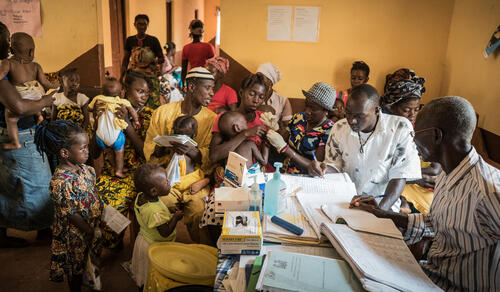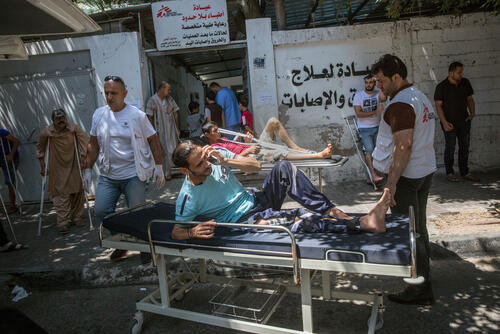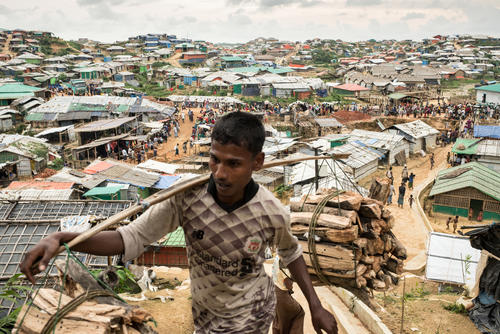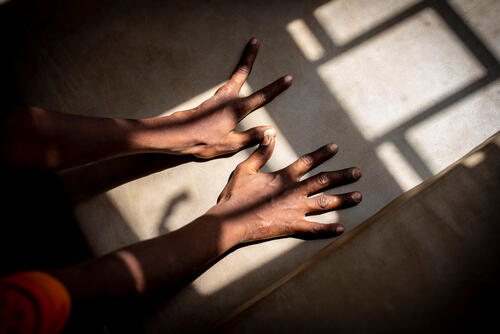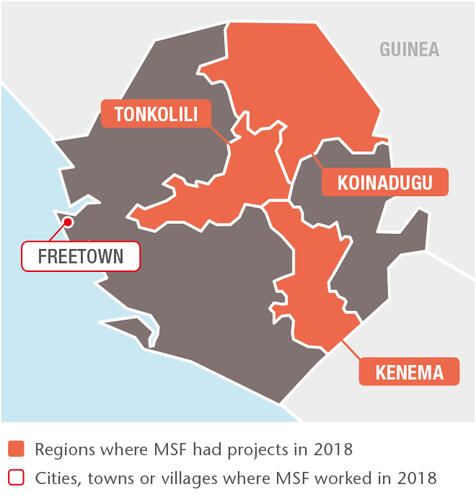
103,800
103,8
43,800
43,8
25,000
25,

8,360
8,36
4,830
4,83
5,890
5,89
Médecins Sans Frontières (MSF) teams work in hospitals, primary health facilities and in the community in Sierra Leone, to increase access to healthcare, fill gaps in the provision of essential medicines, and help develop the country’s health workforce.
Our focus is on maternal and child healthcare, but we monitor the health situation across the country, ready to respond to emergencies as required.
Tonkolili district
In 2018, we continued to support Magburaka district hospital’s maternal and child health services, introducing water and sanitation improvements, a blood bank, and enhanced infection prevention and control measures.
Our teams assisted 3,230 births and conducted 16,300 ante- and 4,370 postnatal consultations during the year, as well as supporting referrals, training staff and conducting community outreach work.
We offer medical and psychological care to victims of sexual violence in Magburaka hospital and the surrounding health facilities, and during the rainy season we supported seven community-based malaria management sites with screening, treatment and referrals.
Koinadugu district
We continued working in the paediatric and maternity wards and the emergency department at Kabala district hospital in Koinadugu throughout 2018, and supported the referral system for the entire district. We also had a team supporting the community health centre, community health workers, traditional birth attendants and the health post.
Having increased the capacity of the hospital and community health facilities, raised the standard of emergency, paediatric and maternity services, and strengthened the referral system, we handed all activities over to the Ministry of Health at the end of the year.
Kenema district
We support 13 primary health facilities in Gorama Mende, Wandor and Nongowa chiefdoms in Kenema district, providing clinical supervision and training, assisting with referrals, filling significant gaps in the supply of essential drugs and medical equipment, and conducting community outreach and health promotion activities.
The foundations of a new hospital were laid in Hangha town in January 2018 and by the end of the year the facility was nearing completion.
Scheduled to open in March 2019, the hospital will offer a full range of paediatric services including an emergency room, an intensive care unit, an inpatient therapeutic feeding centre, a general paediatric ward, and an isolation ward, as well as a laboratory and a blood bank. Longer-term expansion plans include the introduction of maternity and radiology services.
Human resources for health
While laying the physical foundations of the hospital in Kenema, we also set about training staff through the MSF Academy for Healthcare – set up in 2016 to improve the skills of medical and paramedical practitioners in low-resource settings with a shortage of trained professionals.
Training was provided to 160 health workers in Kenema district in 2018. Another 50 (25 nurses and 25 midwives) went to Ghana for a 24-month scholarship programme, and 12 joined nurses from South Sudan on an 18-month anaesthetics diploma course.
The nurses and midwives from Sierra Leone will return to work in the new hospital in Kenema, and the project will serve as a pilot to develop the tools and expertise needed to meet training needs in other countries such as the Central African Republic, the Democratic Republic of Congo and South Sudan.



